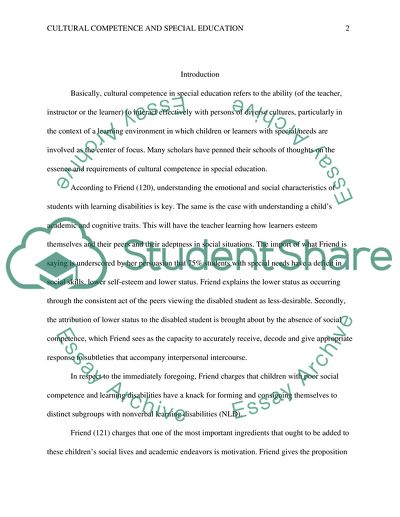Cultural competency and special education Book Report/Review. Retrieved from https://studentshare.org/education/1609123-cultural-competency-and-special-education
Cultural Competency and Special Education Book Report/Review. https://studentshare.org/education/1609123-cultural-competency-and-special-education.


